Disassembly Procedure
Tools Required
| • | J 35910
Drive
Axle Seal Clamp Pliers |
| • | J 41048
Drive
Axle Swage Ring Clamps |
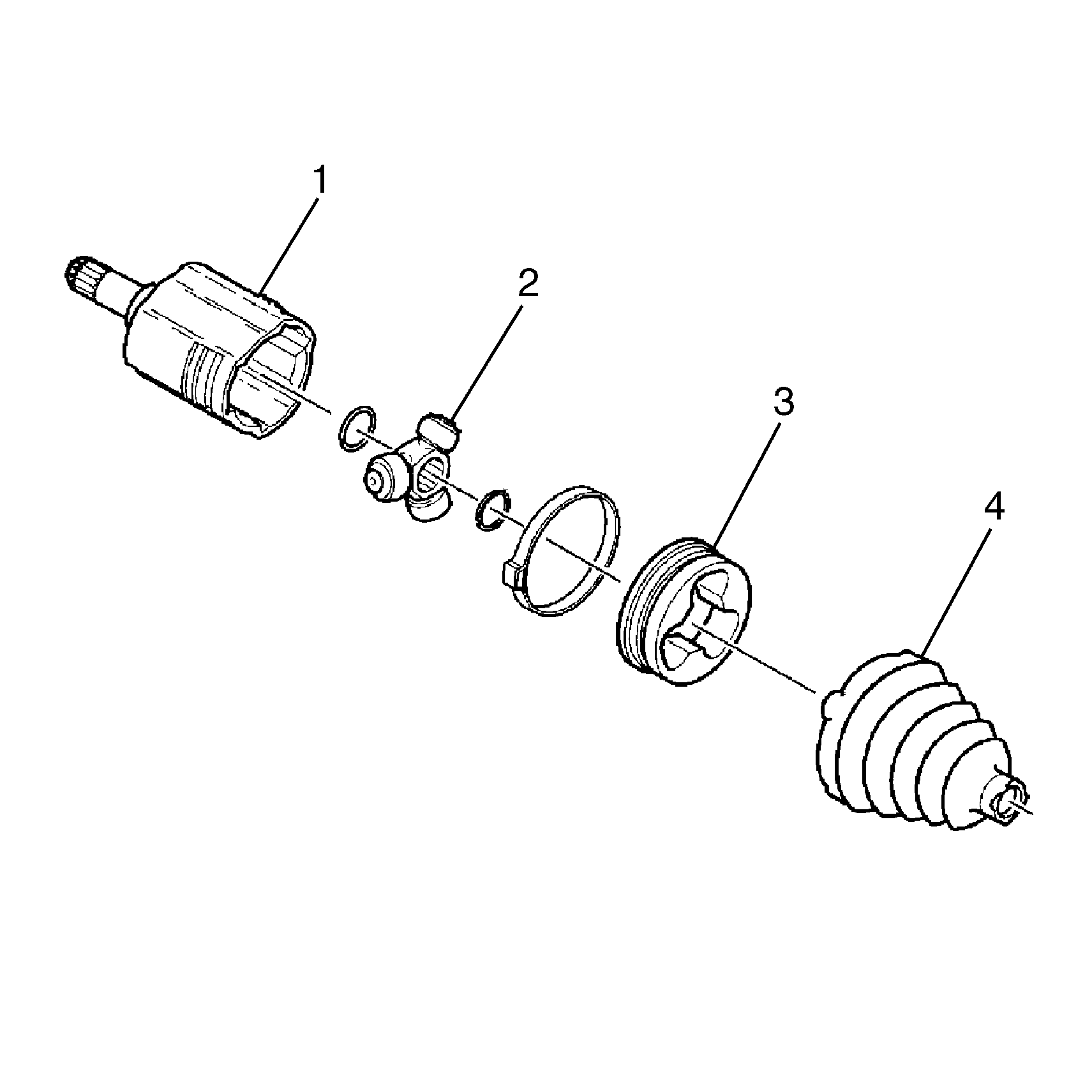
Notice: With the removal of the wheel drive shaft for any reason, the transmission
sealing surface (the tripot male/female shank of the joint) should be inspected
for corrosion. If corrosion is evident, the surface should be cleaned with
320 grit cloth or equivalent in a rotational motion only. Do not clean with
an oscillating motion. Transmission fluid may be used to clean off any remaining
debris and the joint wiped dry before installation. Corrosion on the joint
sealing surface may damage the transmission seals and cause a fluid leak.
- Use a hand grinder in order to cut through the swage ring.
Do not damage the tripot housing (1).
- Remove the large seal retaining clamp from the tripot joint with
side cutter.
- Dispose of the large seal retaining clamp.
Notice: Do not cut through the wheel drive shaft inboard or outboard boot during service. Cutting through the boot may damage the sealing surface of the housing and the tripot or the constant velocity joint bushing. Damage
to the sealing surface may lead to water and dirt intrusion and premature wear of the constant velocity joint.
Notice: Do not cut through the wheel drive shaft inboard or outboard boot during service. Cutting through the boot may damage the sealing surface of the housing and the tripot or the constant velocity joint bushing. Damage
to the sealing surface may lead to water and dirt intrusion and premature wear of the constant velocity joint.
- Separate the halfshaft inboard seal from the trilobal tripot bushing (3)
at the large diameter.
- Slide the seal (4) away from the joint along the halfshaft
bar.
- Remove the housing (1) from the tripot joint spider (2)
and the halfshaft bar.
- Remove the trilobal tripot bushing (3) from the housing (1).
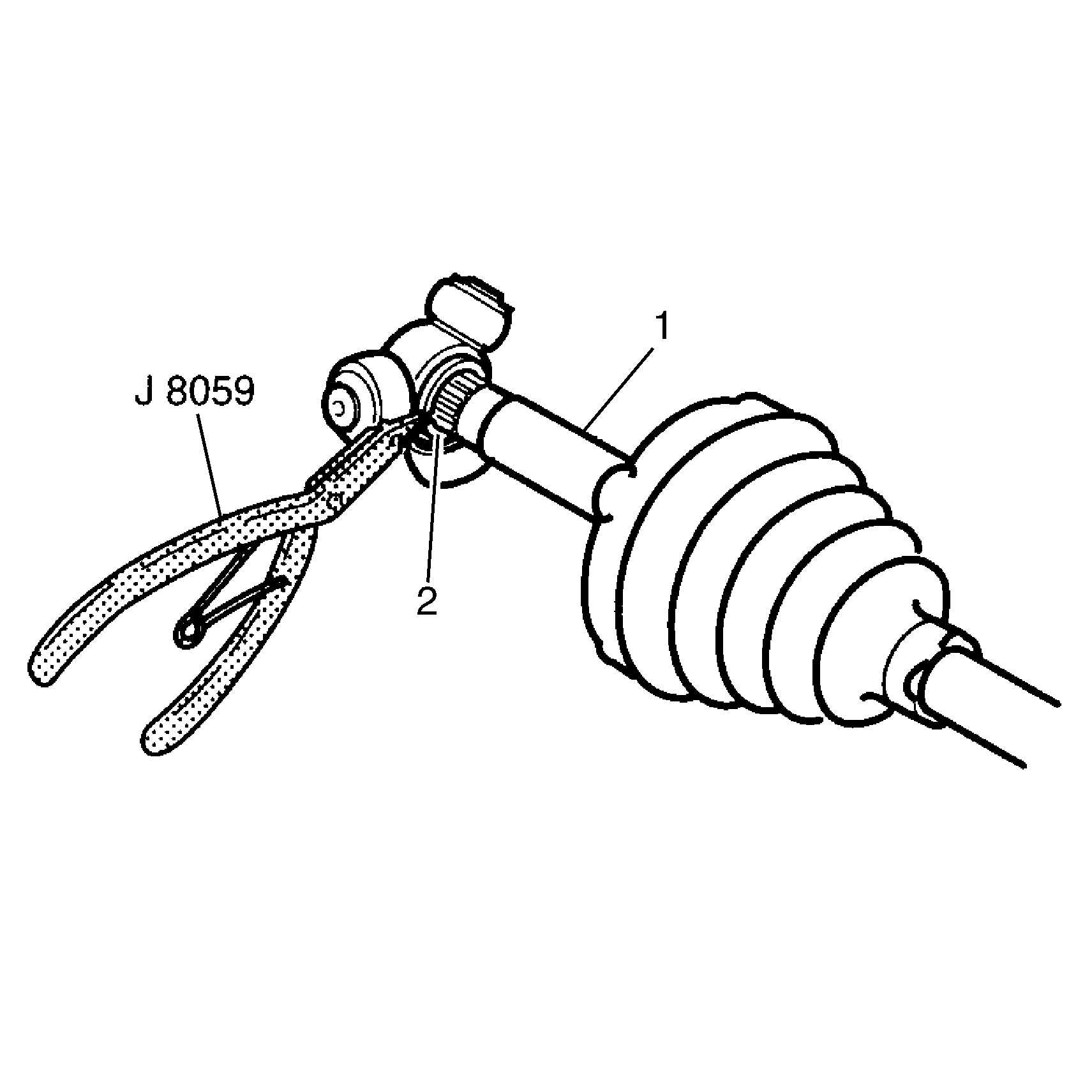
- Spread spacer ring (2)
with
J 8059
.
- Slide the spacer ring and tripot joint spider back on halfshaft
bar (1).
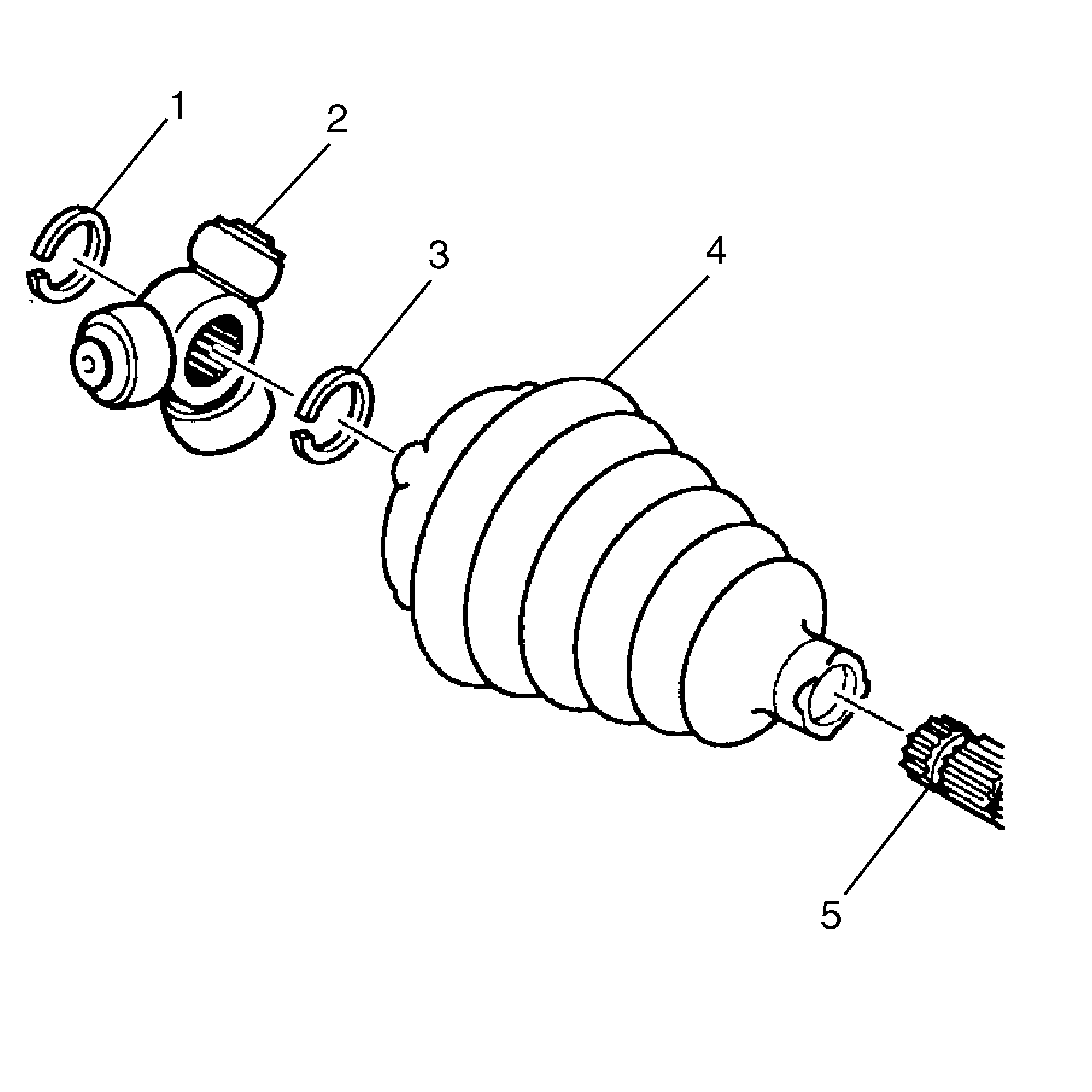
- Remove the halfshaft bar
retaining ring from the groove (5) on the halfshaft bar.
- Slide tripot joint spider assembly (2) off of the halfshaft
bar.
- Clean the following items with cleaning solvent:
- Remove all traces of old grease and any contaminates. Dry all
parts.

- Inspect the following
parts for damage or wear:
| • | The halfshaft inboard seal (4) |
| • | The tripot joint spider assembly (2) |
| • | The trilobal tripot bushing (3) |
Assembly Procedure
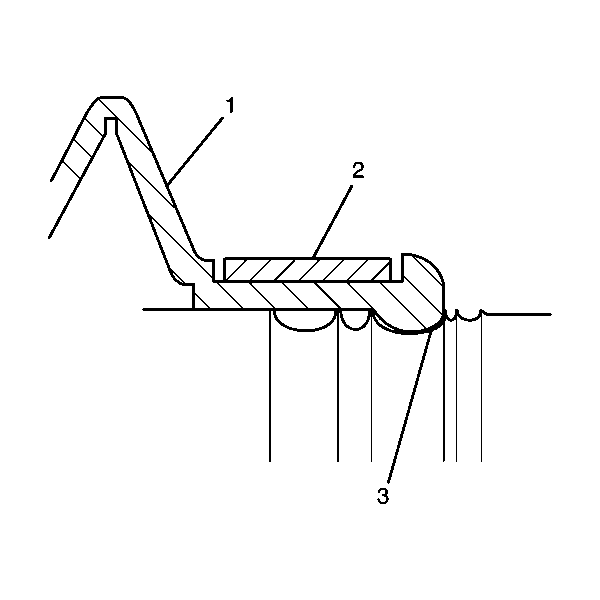
- Place the new small seal
clamp (2) onto the small end of the joint seal (1). Slide the
joint seal (1) and the small seal clamp (2) onto the halfshaft
bar.
- Position the small end of the joint seal (1) into the joint
seal groove (3) on the halfshaft bar.
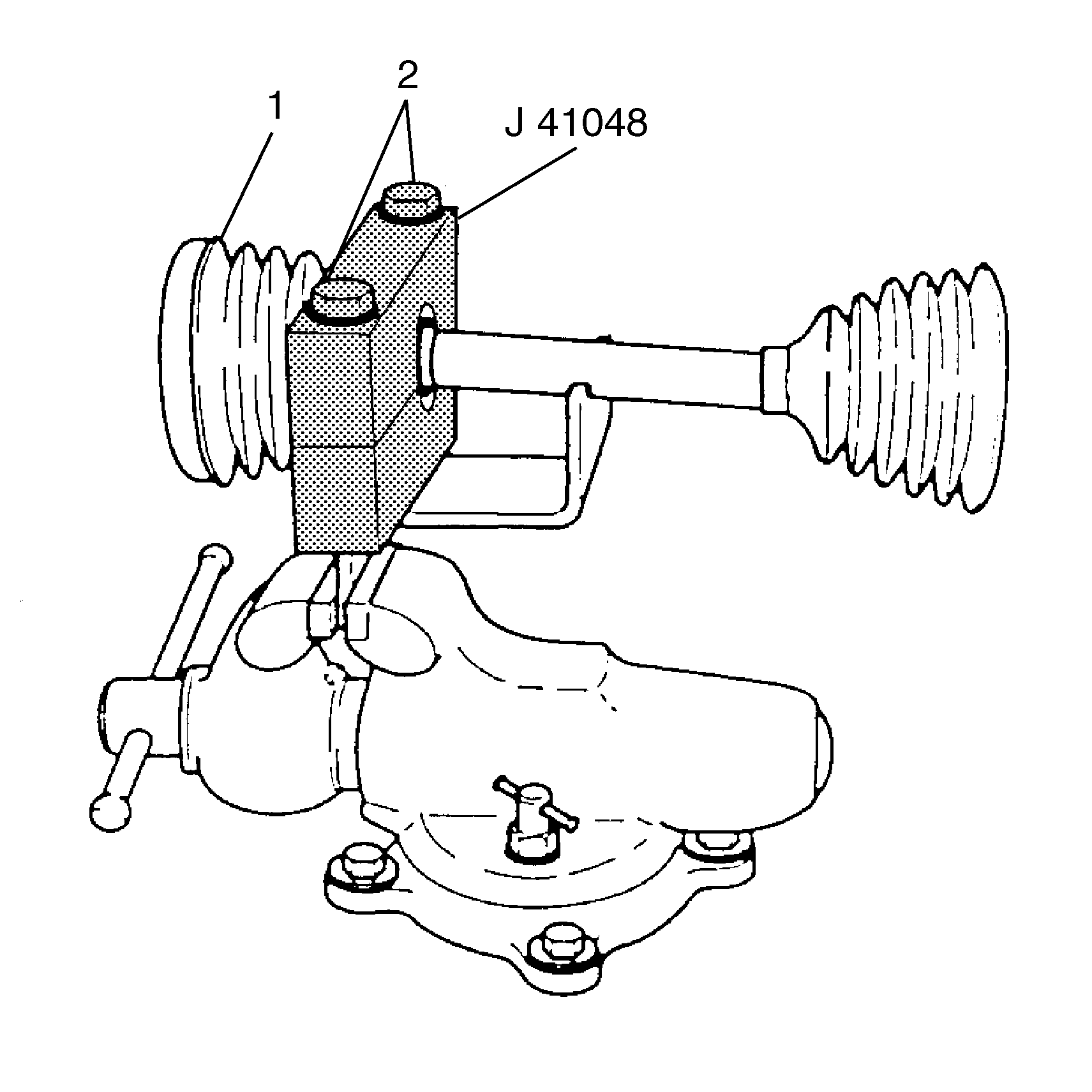
- Mount
J 41048
in a vise and proceed as follows:
| 3.1. | Position the outboard end (1) of the halfshaft assembly
in tool
J 41048
. |
| 3.2. | Align the top of seal neck on the bottom die using the indicator. |
| 3.3. | Place the top half of the
J 41048
on the lower half of the
J 41048
. |
| 3.4. | Before proceeding, ensure there are no pinch points on the halfshaft
inboard seal. This could cause damage to the halfshaft inboard seal. |
| 3.5. | Insert the bolts (2). |
| 3.6. | Tighten the bolts by hand until snug. |
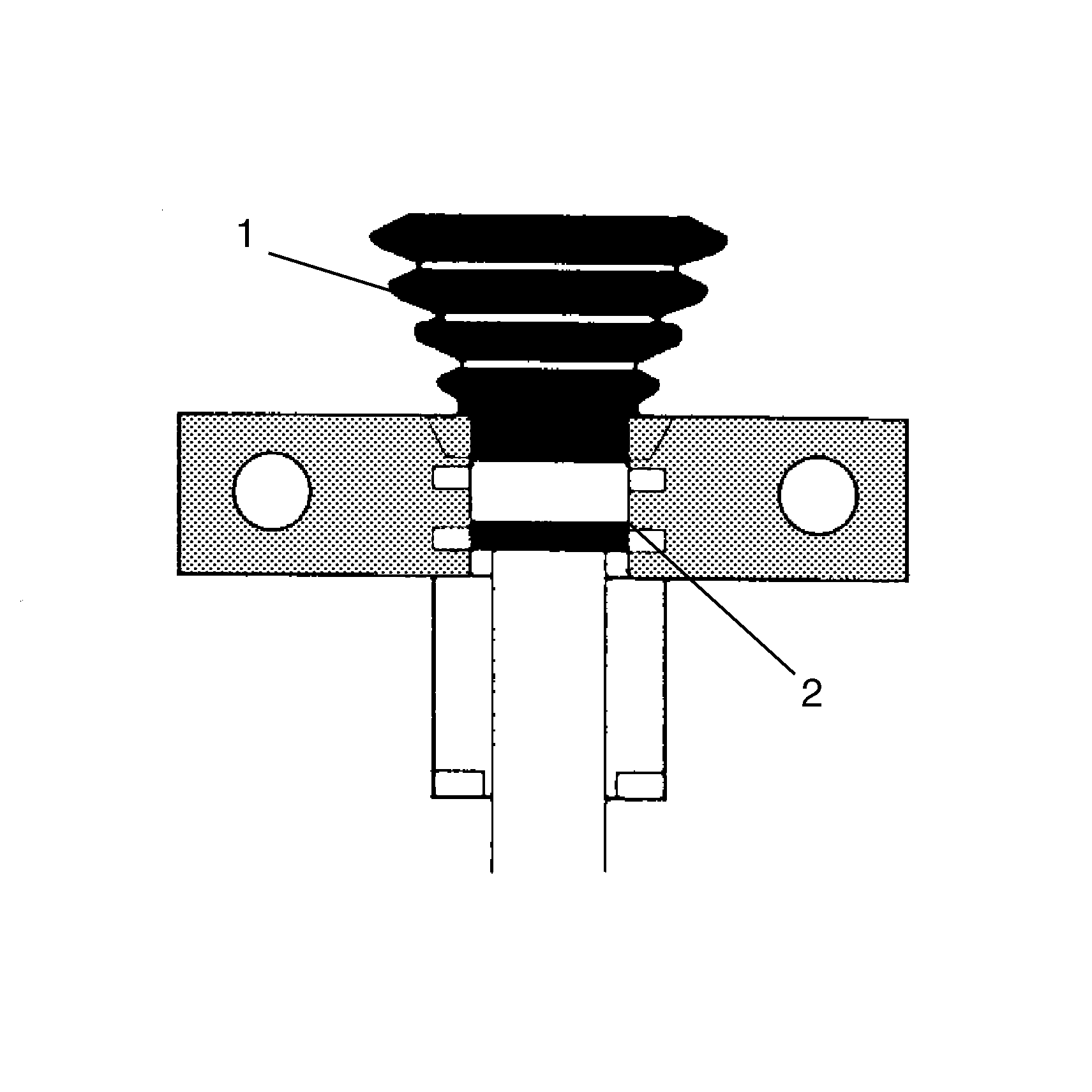
Notice: Use the correct fastener in the correct location. Replacement fasteners
must be the correct part number for that application. Fasteners requiring
replacement or fasteners requiring the use of thread locking compound or sealant
are identified in the service procedure. Do not use paints, lubricants, or
corrosion inhibitors on fasteners or fastener joint surfaces unless specified.
These coatings affect fastener torque and joint clamping force and may damage
the fastener. Use the correct tightening sequence and specifications when
installing fasteners in order to avoid damage to parts and systems.
- Align the following items:
| • | The halfshaft inboard seal (1) |
Tighten
Tighten each bolt of
J 41048
180 degrees at a time using a ratchet wrench. Alternate
between each bolt until both sides are bottomed.
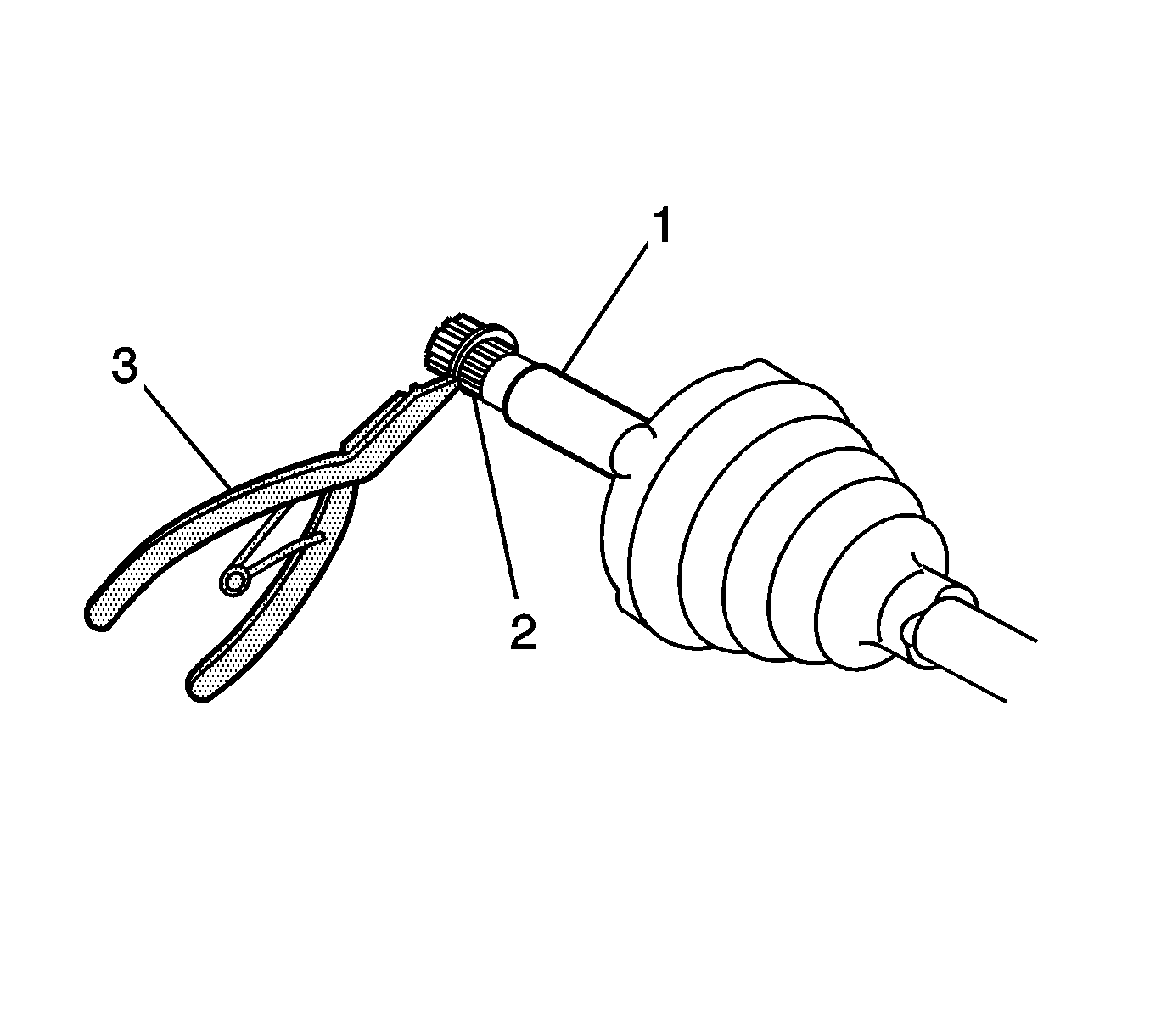
- Install the spacer ring (2)
on the halfshaft bar (1) in groove using
J 8059
.
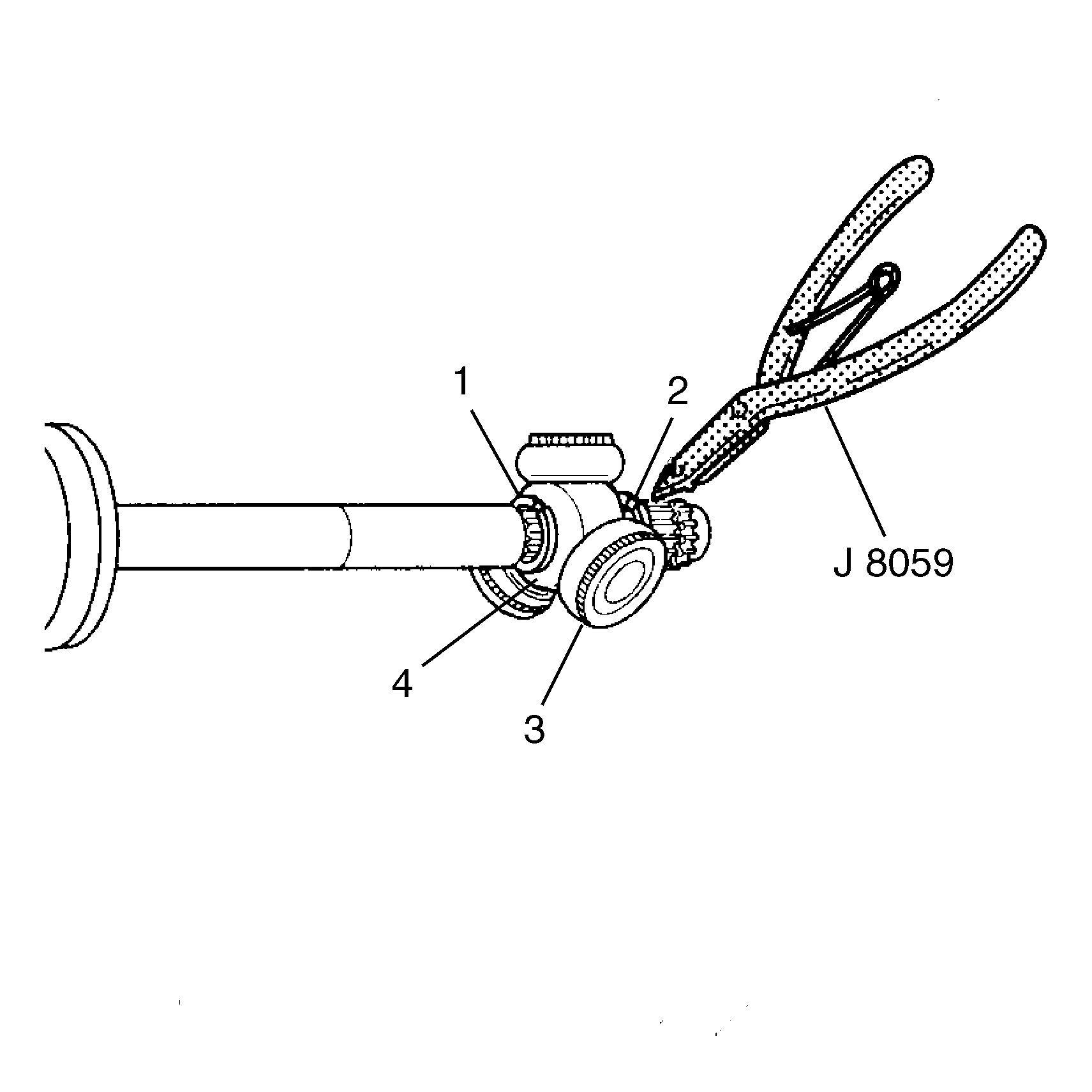
Important: Ensure that the counterbored face of the tripot joint spider (2)
faces toward the end of the halfshaft bar (4).
- Slide the tripot joint spider assembly (2) toward the spacer
ring (1) as far as it will go on the halfshaft bar (4).
- Install the halfshaft bar retaining ring in the groove of the
halfshaft bar.

Important: Ensure the trilobal tripot bushing (3) is flush with the face
of the housing (1).
- Place approximately half of the grease from the service kit in the halfshaft
inboard seal. Use the remainder of the grease to repack the housing.
- Install the trilobal tripot bushing (3) to housing.
- Position the larger new seal retaining clamp (2) on the
halfshaft inboard seal.
- Slide the housing (1) over the tripot joint spider assembly
on the halfshaft bar.
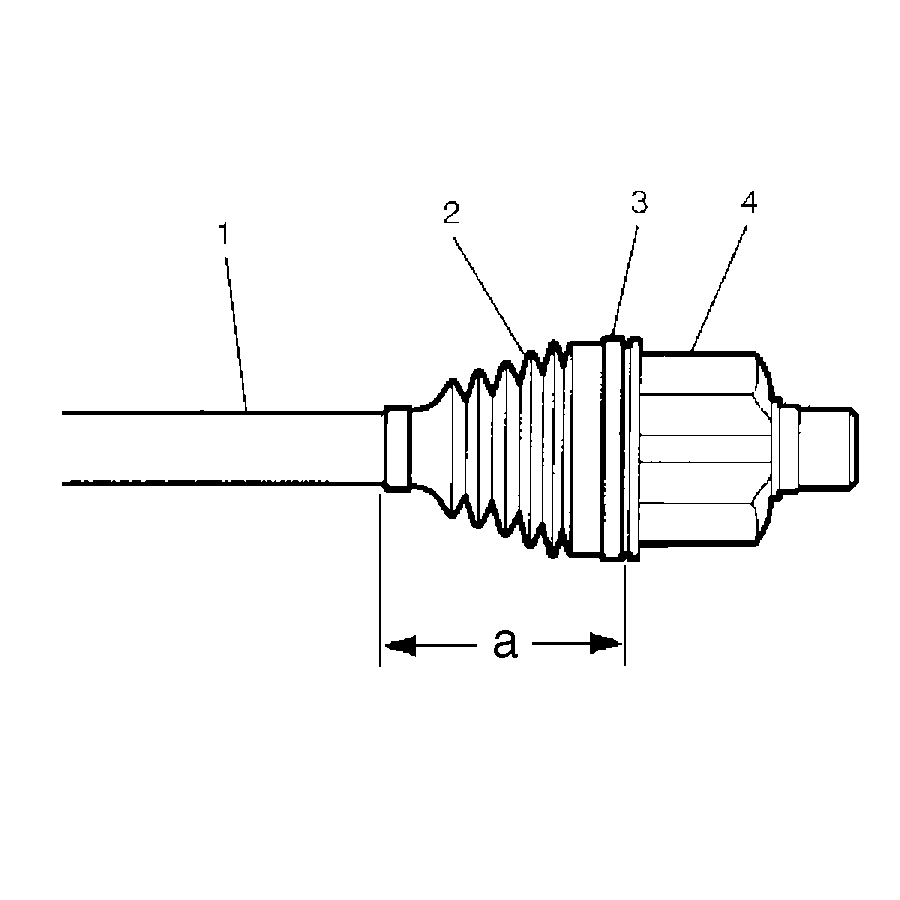
- Slide the large diameter
of the halfshaft inboard seal (2), with the larger clamp (3)
in place, over the outside of the trilobal tripot bushing and locate the lip
of the seal in the groove.
Important: The halfshaft inboard seal must not be dimpled, stretched out or out
of shape in any way. If the halfshaft inboard seal is not shaped correctly,
carefully insert a thin flat blunt tool (no sharp edges) between the large
seal opening and the trilobal tripot bushing in order to equalize the pressure.
Shape the halfshaft inboard seal properly by hand. Remove the tool.
- Position the joint assembly at the proper vehicle dimension. Dimension
"a" = 108 mm (4.25 in)
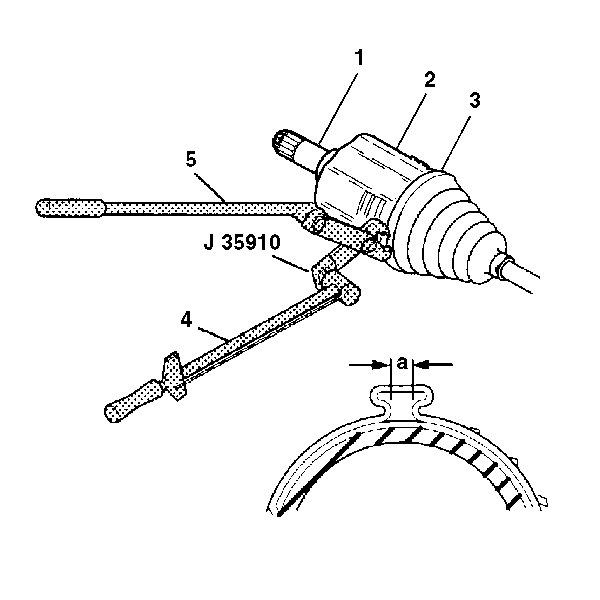
- Align the following items
while latching:
| • | The halfshaft inboard seal |
| • | The large seal retaining clamp (3) |
Tighten
Crimp the seal retaining clamp (2) with
J 35910
to 176 N·m (130 lb ft).
Add the breaker bar (5) and the torque wrench (4) to
J 35910
if necessary. Tighten until dimension
"a" = 2.60 mm (0.102 in)












